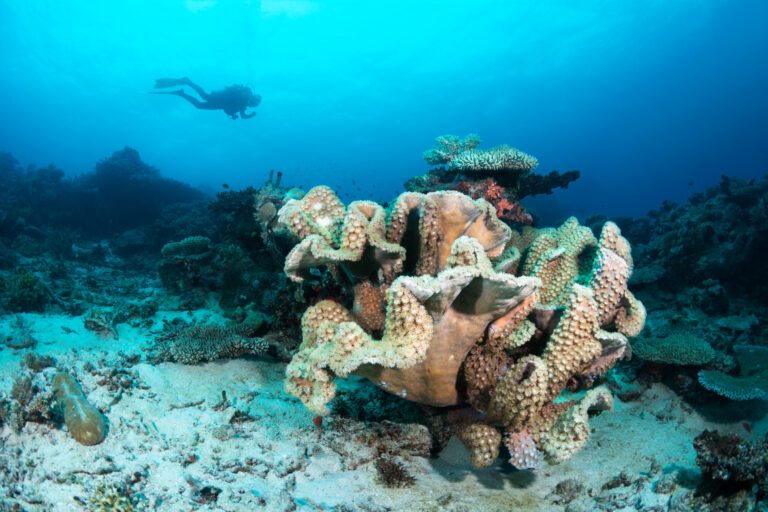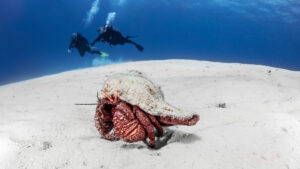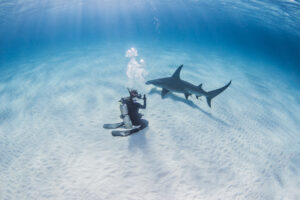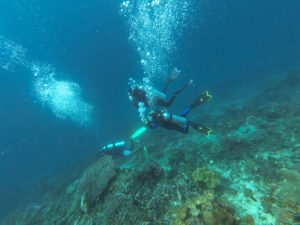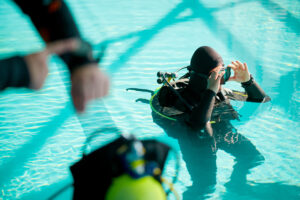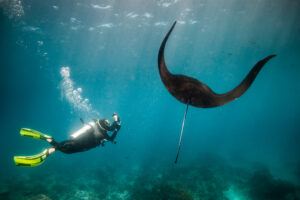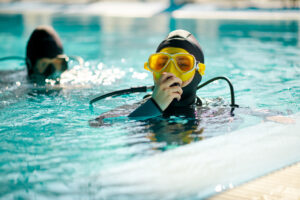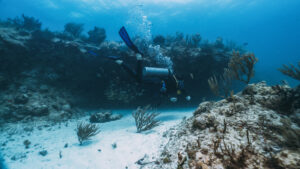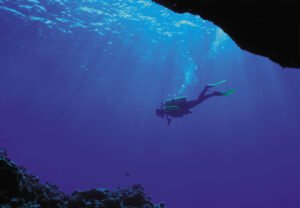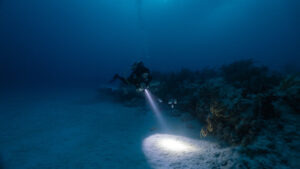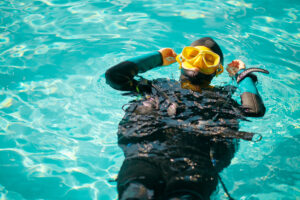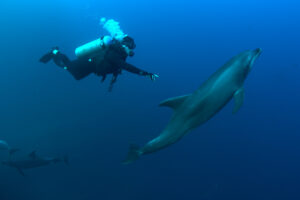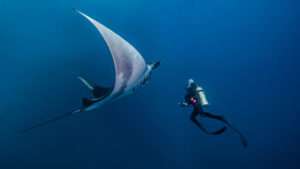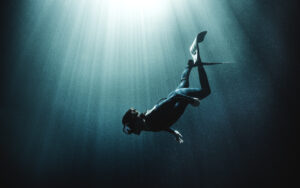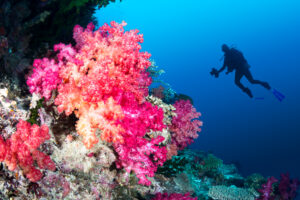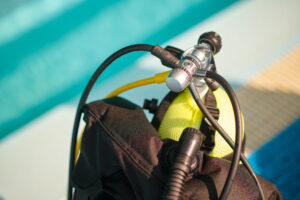What is a Dive Instructor?
A dive instructor is a professional responsible for teaching and guiding individuals in the activity of scuba diving. Dive instructors play a crucial role in the scuba diving industry, ensuring that new and experienced divers acquire the necessary skills and knowledge to dive safely and enjoyably. These professionals are vital for maintaining high safety standards and promoting environmental awareness among divers. Dive instructors must possess a combination of technical diving skills, teaching abilities, and a deep understanding of underwater environments to perform their duties effectively. Their work involves training divers at various levels, from beginners to advanced certifications, and often includes leading dive trips, conducting safety briefings, and ensuring compliance with diving regulations.
Historical Development
The role of the dive instructor has evolved significantly since the early days of scuba diving. In the mid-20th century, recreational scuba diving began to gain popularity, primarily due to advancements in diving equipment and the influence of pioneers like Jacques Cousteau. Initially, diving was taught informally, often by experienced divers passing on their knowledge to newcomers. However, as the activity grew in popularity, the need for standardized training and certification became evident.
The establishment of major certifying organizations such as the Professional Association of Diving Instructors (PADI) in 1966 and the National Association of Underwater Instructors (NAUI) in 1959 marked a turning point in the professionalization of dive instruction. These organizations developed standardized training programs, instructor certification processes, and safety protocols that have since become industry benchmarks.
Over the decades, the role of dive instructors has expanded beyond basic training. Today, dive instructors are involved in a wide range of activities, including advanced and specialty courses, technical diving, and marine conservation efforts. The evolution of dive instruction reflects broader changes in the scuba diving industry, emphasizing safety, environmental stewardship, and the development of a global diving community.
Qualifications and Certification
Becoming a dive instructor requires a combination of diving experience, specialized training, and formal certification. The process typically begins with obtaining basic and advanced scuba diving certifications. Prospective instructors must accumulate significant diving experience, often requiring hundreds of logged dives, before they can enter instructor training programs.
Major certifying bodies such as PADI, NAUI, and Scuba Schools International (SSI) offer instructor certification courses. These programs are rigorous, involving both theoretical and practical components. Candidates learn about dive theory, teaching techniques, safety procedures, and emergency management. They must also demonstrate proficiency in various diving skills and the ability to effectively teach and manage students.
In addition to training provided by certifying organizations, some countries have specific legal requirements for dive instructors. These may include holding a valid first aid and CPR certification, passing a medical examination, and adhering to local diving regulations. The certification process is designed to ensure that dive instructors are well-prepared to handle the responsibilities and challenges of their role, prioritizing the safety and education of their students.
Skills and Responsibilities
Dive instructors must possess a diverse set of skills to perform their duties effectively. At the core of their responsibilities is ensuring the safety of their students and providing high-quality instruction. This requires a thorough understanding of diving theory, proficiency in various diving techniques, and the ability to communicate complex information clearly and effectively.
A key responsibility of dive instructors is conducting training sessions for divers of all levels. This includes teaching basic skills to beginners, leading advanced and specialty courses, and guiding certified divers on recreational dives. Instructors must be adept at assessing the abilities of their students and adjusting their teaching methods to suit individual needs. Effective communication is crucial, as instructors must convey important safety information and provide clear instructions both on the surface and underwater.
Beyond teaching, dive instructors play a vital role in ensuring the safety of diving activities. This involves conducting pre-dive briefings, performing equipment checks, and supervising dives to manage risks and respond to emergencies. Instructors must be trained in first aid and emergency response, capable of handling situations such as decompression sickness, equipment malfunctions, and other potential hazards.
Environmental stewardship is another important aspect of a dive instructor’s responsibilities. Instructors are often involved in marine conservation efforts, educating divers about the importance of protecting underwater ecosystems. This includes promoting responsible diving practices, such as avoiding contact with marine life and minimizing environmental impact. By fostering a sense of environmental awareness among divers, instructors contribute to the preservation of marine environments.
Training and Education
The journey to becoming a dive instructor involves extensive training and education. Prospective instructors typically start with basic scuba diving courses, progressing through advanced and specialty certifications. As they gain experience and confidence in their diving abilities, they can enroll in instructor development programs offered by certifying organizations like PADI, NAUI, and SSI.
Instructor development courses are comprehensive, covering both theoretical knowledge and practical skills. Candidates learn about dive theory, including physics, physiology, and decompression theory. They also receive training in teaching techniques, safety procedures, and emergency management. Practical components of the training involve demonstrating proficiency in various diving skills, conducting simulated teaching sessions, and managing real-world diving scenarios.
Continuing education is essential for dive instructors to stay current with industry developments and maintain their certification. Many instructors pursue advanced certifications, such as technical diving or instructor trainer qualifications, to expand their expertise and career opportunities. Additionally, instructors are required to complete regular refresher courses and stay updated on changes in diving regulations and best practices.
Non-diving skills are also important for dive instructors. Training in first aid, CPR, and rescue techniques is mandatory, as instructors must be prepared to respond to emergencies. Strong communication and interpersonal skills are crucial for effective teaching and student management. Instructors must also be physically fit, as the job can be demanding, requiring the ability to lift heavy equipment and perform physically strenuous activities.
Challenges in the Profession
Being a dive instructor comes with a unique set of challenges. One of the primary challenges is managing the safety of students in diverse and sometimes unpredictable underwater environments. Instructors must be vigilant and capable of assessing and mitigating risks, from equipment malfunctions to adverse weather conditions. Ensuring that students follow safety protocols and respond appropriately to instructions is crucial for preventing accidents.
The physical and mental demands of the job can also be challenging. Dive instructors often work long hours, leading multiple dives in a day and conducting classroom sessions. The physical requirements of diving, such as carrying heavy equipment and dealing with varying water conditions, can be taxing. Additionally, instructors must maintain a high level of mental alertness and readiness to handle emergencies, which can be stressful.
Another challenge is managing a diverse group of students with varying skill levels, learning styles, and comfort levels in the water. Instructors must be adaptable, patient, and skilled at providing individualized attention to ensure that each student progresses safely and confidently. This requires excellent communication skills and the ability to build trust and rapport with students.
Environmental conditions can also pose challenges for dive instructors. Factors such as visibility, water temperature, and currents can vary significantly between dive sites, impacting the safety and enjoyment of dives. Instructors must be knowledgeable about local conditions and prepared to adjust dive plans accordingly. Additionally, they must educate students about the potential impacts of environmental factors on diving activities.
Professional Opportunities
Dive instructors have a variety of career opportunities within the scuba diving industry. Many instructors work at dive shops, resorts, and liveaboard boats, providing training and leading dives for recreational divers. These positions often offer the chance to work in beautiful and exotic locations, making the job attractive to those with a passion for travel and adventure.
Beyond traditional dive instruction, there are opportunities to specialize in areas such as technical diving, underwater photography, and marine conservation. Instructors with advanced certifications can teach specialty courses, lead technical dives, or work as guides for underwater photographers. Those interested in conservation can get involved in projects related to coral reef restoration, marine research, and environmental education.
Some dive instructors pursue careers in dive shop management or ownership, combining their diving expertise with business skills. This path allows instructors to have a greater influence on the operation of diving services and the promotion of responsible diving practices. Additionally, experienced instructors can become instructor trainers, mentoring and certifying new instructors, and contributing to the development of the diving community.
Key Takeaways
Dive instructors play an essential role in the scuba diving industry, ensuring that divers receive proper training, prioritize safety, and develop a respect for marine environments. Becoming a dive instructor requires extensive training, certification, and a commitment to continuous learning. The profession comes with unique challenges, including managing safety, handling diverse student needs, and adapting to varying environmental conditions. However, it also offers diverse career opportunities and the chance to work in exciting locations. Dive instructors significantly impact the diving experience, contributing to the growth and sustainability of the diving community.

